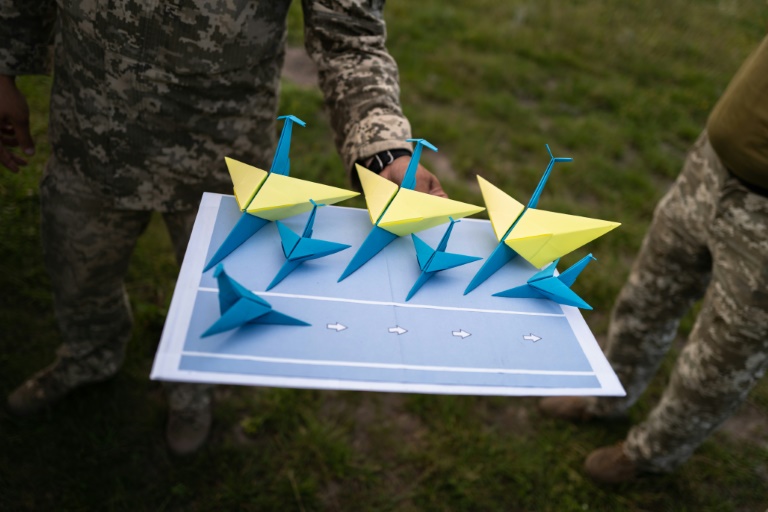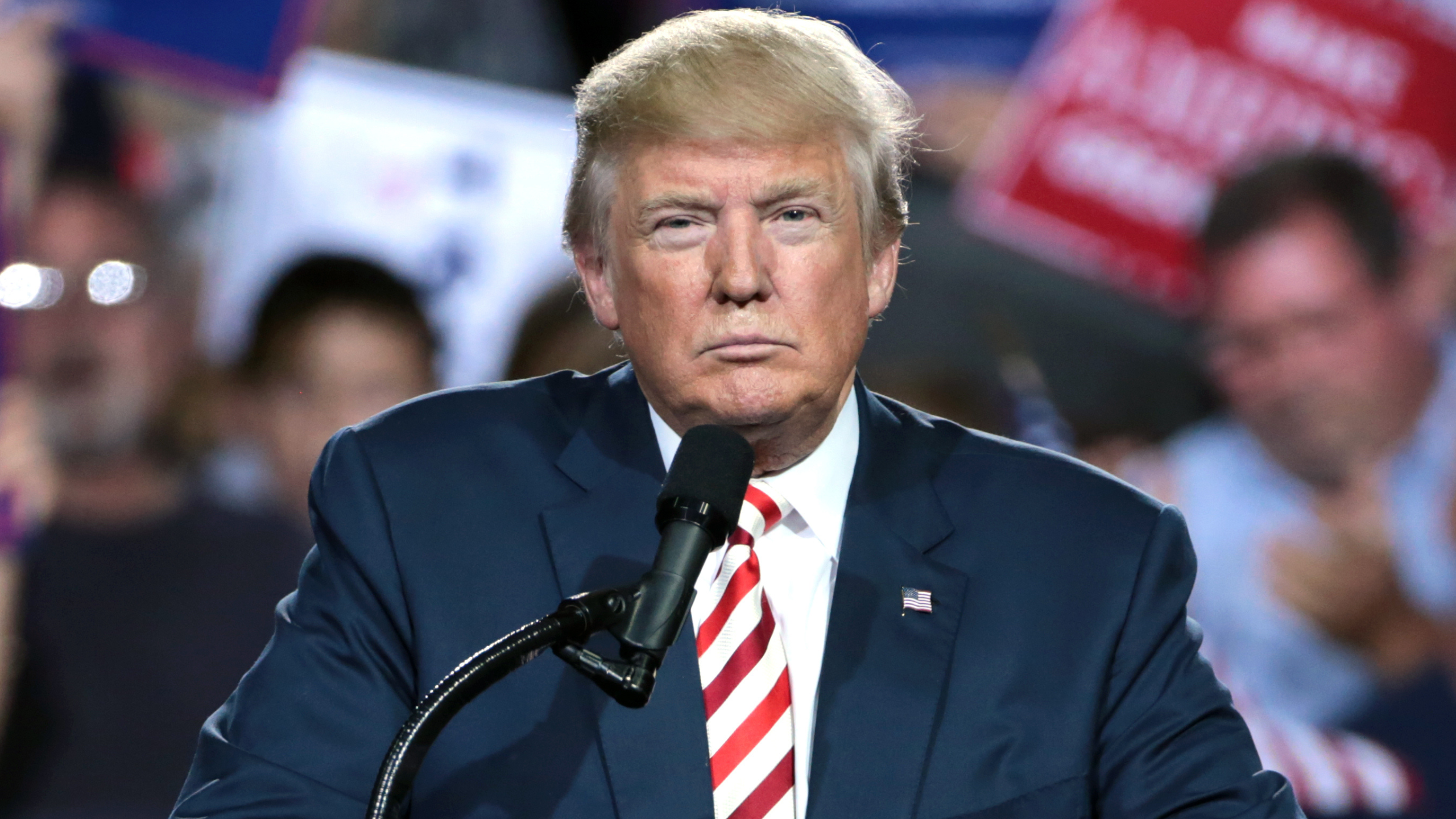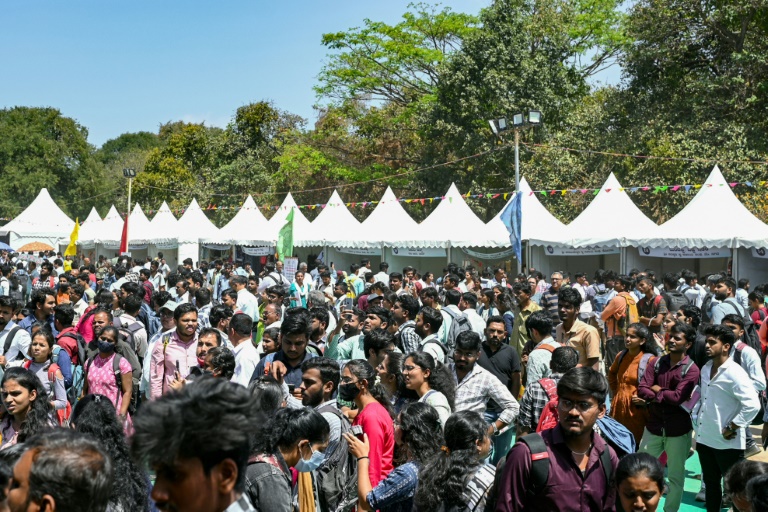With its castle, medieval tower and river-side beach, the western Ukrainian tourist town of Starokostiantyniv doesn’t seem an obvious target for Russian missile and drone strikes.
But a major airbase across the Sluch river has put the town firmly in Russia’s sights — and locals fear the imminent arrival of F-16 fighter jets in Ukraine will only intensify the bombardments.
“We’re super nervous about the arrival of the F-16s. If they park them here, the number of attacks will only go up,” said Olena Shpachenko, a guide at the town’s history museum, located inside the 17th-century castle.
Kyiv says the advanced US-made fighters, some already being transferred to Ukraine, will help it better protect its skies and compete with Russia for air superiority.
Russia has intensified its bombing of Ukrainian air bases — including Starokostiantyniv, home to the Seventh Tactical Aviation Bridge — and pledged to target F-16s.
In a show of force earlier this month, Moscow hit three Ukrainian airfields in as many days.
“From here we have a good view of the explosions,” said Shpachenko, gesturing out of the castle window.
“We hear them as if we were right there,” she told AFP.
For more than two years, she has watched the enemy’s explosive drones and supersonic missiles pepper the sky at night.
Pointing to a row of partially damaged ancient religions icons hanging over her desk, she said the air base was “so close, the missiles can make it all the way over here.”
Ukraine and its Western partners have not given any official indication of where the F-16s will be based.
A Western defence industry source told AFP the Starokostiantyniv airfield — equipped with Soviet-era partially underground shelters — is an ideal candidate.
Residents, used to the roar of jets even before the war, say tensions in the city are ratcheting up.
“The authorities held a large-scale exercise in the event of a nuclear strike. They believe the base is a prime target for Moscow,” said Shpachenko.
“We pray that the F-16s don’t wind up here,” she added, looking anxiously outside once more.
Even if Ukraine’s air defences intercept Russian missiles targeting the base, “debris will rain down on the city,” she feared.
She has forbidden her daughters from playing outside.
Despite being hundreds of kilometres from the front lines, the war literally hangs over the town that locals call “Starkon”.
The smell of powder and kerosene punctuate the air and the sky is strewn with black contrails left behind by the jets.
Large tanks of jet fuel are hidden in the surrounding woods, where groups of soldiers were playing cards in a moment of respite.
The town’s lights are turned off at night and the troops scour the sky, ready to shoot down drones with machine guns.
Anatoliy, the commander of a mobile anti-aircraft unit, said Russia had stepped up attacks over the past month.
“The Russians are now using cluster munitions with the aim of damaging the jets on the ground,” he said, puffing on a cigarette.
The explosives can target areas covering thousands of square metres with a single drop.
Asked if he thought the escalation was due to the possible arrival of the F-16s, Anatoliy hesitated, before smiling: “The Russians, those fools, will never guess where they are.”
The war has also taken its toll on the town’s previously vibrant tourism industry.
“The soldiers, the attacks… it discourages people from coming. We’ve even had drone debris fall on the beach, Shpachenko said.
One family of vacationers “heard a plane flying close to the ground, dropped their stuff and ran to the castle,” she said.
Many of the Ukrainians who came to Starokostiantyniv after fleeing their homes in the east left as soon as they heard the first roar of a fighter plane.
“The desire to survive is stronger than the need for rest,” said Shpachenko.
Despite the danger, some locals were outside, relaxing in the shade of the weeping willows or on the small beach.
Valery, in his 70s, has been here so long he knows the engine noises of the different planes by heart.
He still goes for a morning swim in the river at the foot of the castle every day.
“I’m afraid of the arrival of the F-16s. I don’t know what will happen to the city if they end up here,” he said.
“Whatever happens, I’m not moving.”
AFP
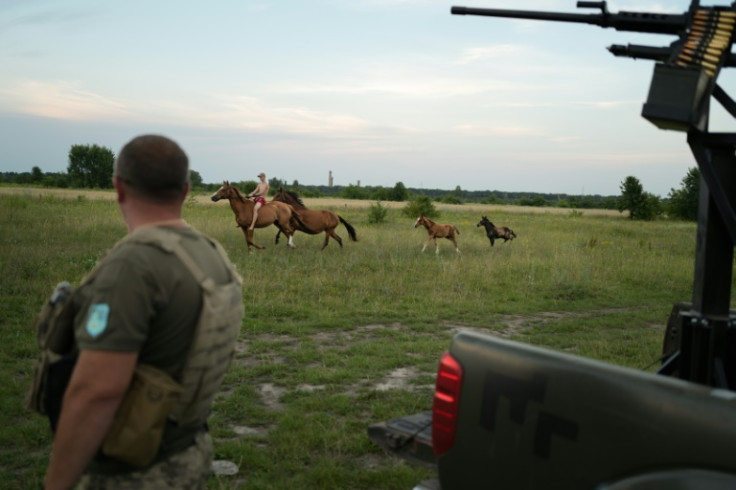
AFP
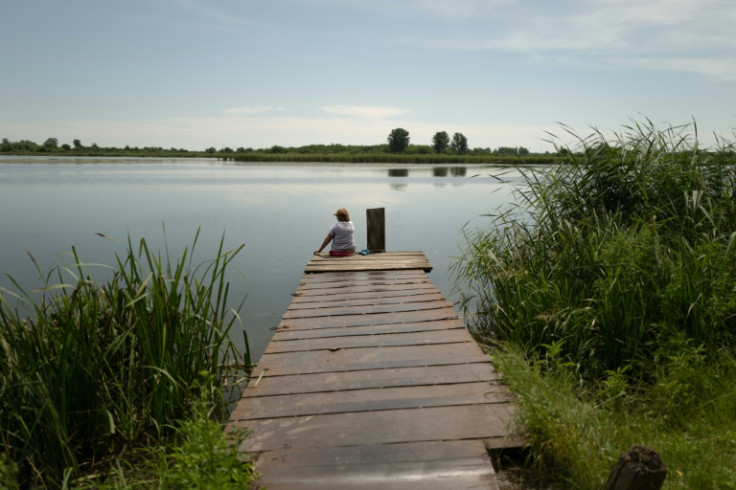
AFP
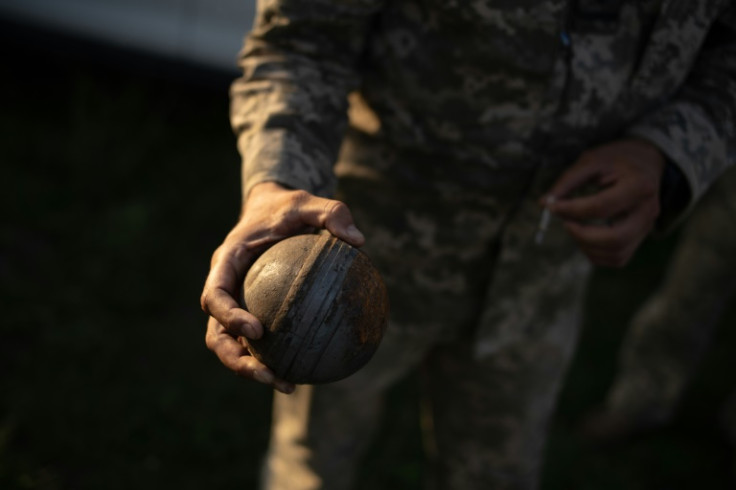
AFP
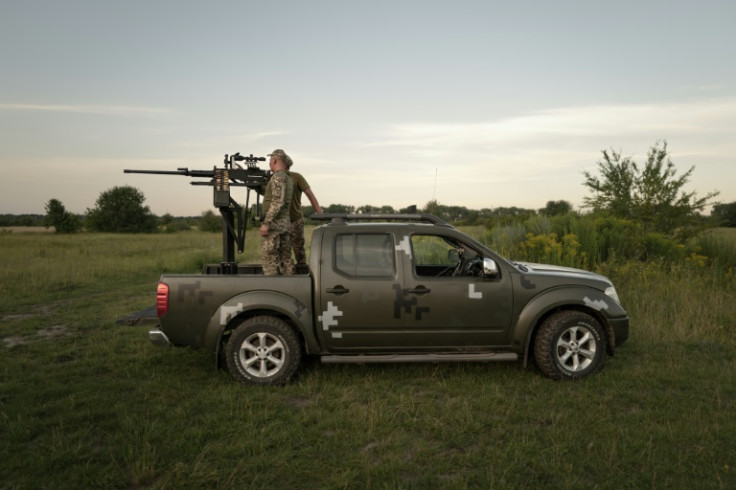
AFP

AFP

